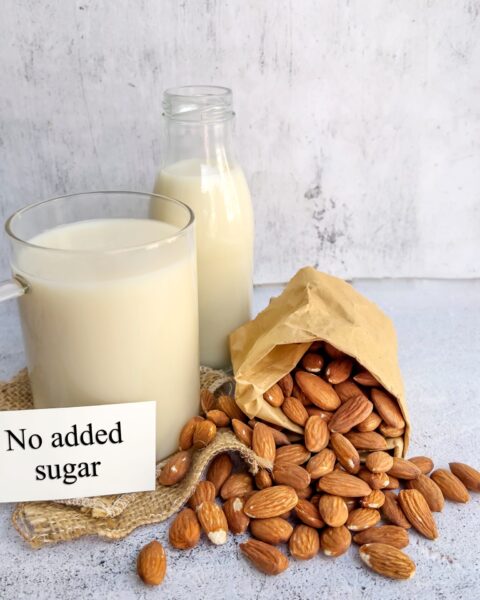When you’re building strength and focusing on protein, non-dairy milk can pack a real punch without any dairy. From the creamy goodness of soy to the smooth richness of pea milk, these plant-based options offer solid protein for fueling those muscles. No need to stick to the same old choices—each one on this list brings unique flavors and nutrients to the table, helping you hit your goals while keeping things fresh.
Contents
- 1 Soy Milk
- 2 Pea Milk
- 3 Hemp Milk
- 4 Oat Milk
- 5 Almond Milk
- 6 Cashew Milk
- 7 Flax Milk
- 8 Rice Milk
- 9 Coconut Milk
- 10 Macadamia Milk
- 11 Hazelnut Milk
- 12 Pistachio Milk
- 13 Peanut Milk
- 14 Sunflower Seed Milk
- 15 Quinoa Milk
- 16 More From RetailShout
- 17 10 New Aldi Finds to Add to Your Cart This November
- 18 18 Chic Target Kitchen Finds That You’ll Absolutely Adore
Soy Milk
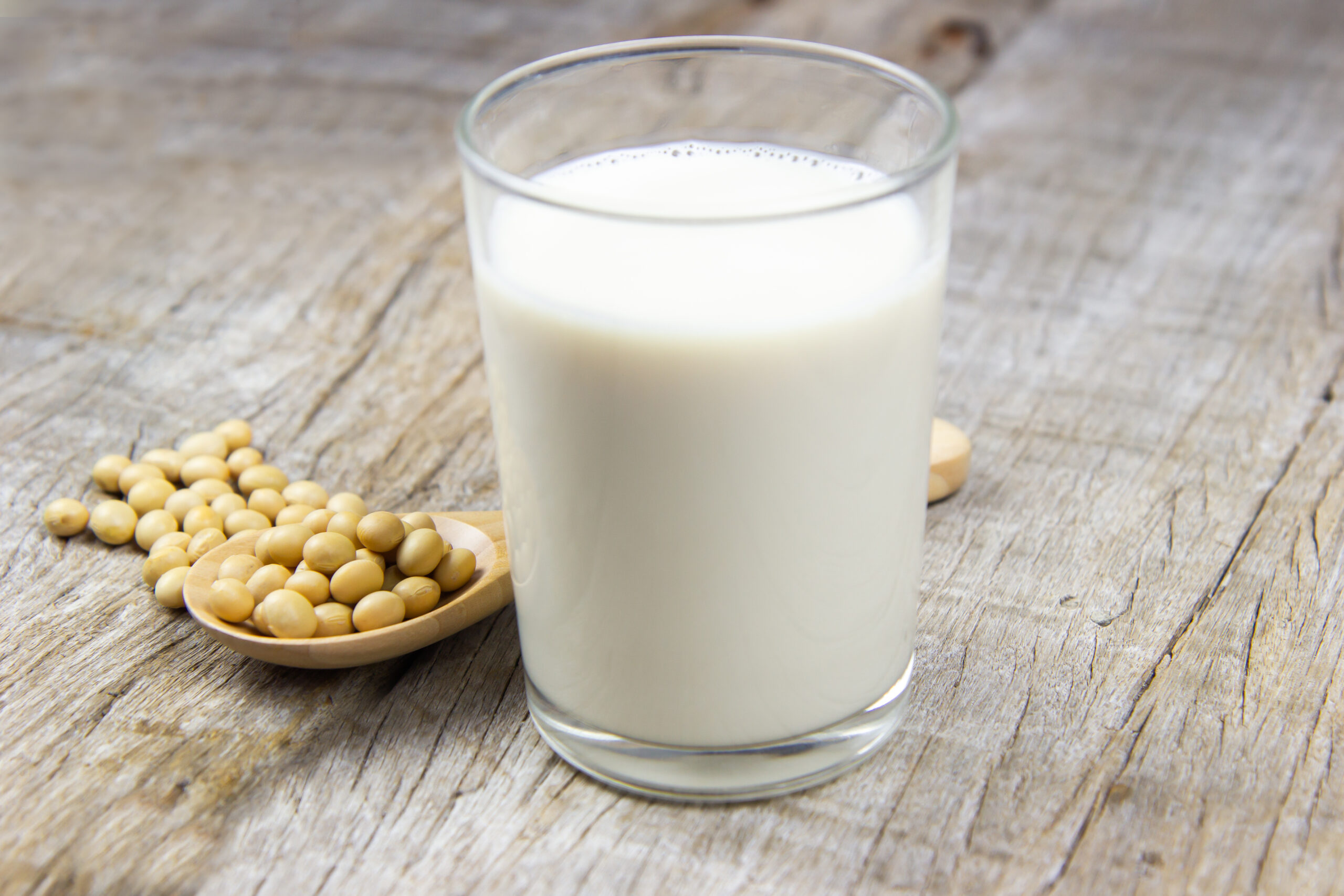
Soy milk stands out as one of the most protein-rich plant-based milks, offering approximately 7–9 grams of protein per cup. Derived from whole soybeans or soy protein isolate, it provides a creamy texture and a mild, slightly sweet flavor. Soy milk is also a good source of essential amino acids, making it a complete protein. Additionally, it is often fortified with vitamins and minerals such as calcium and vitamin D, enhancing its nutritional profile. Its versatility allows it to be used in various culinary applications, from smoothies to baking.
Pea Milk
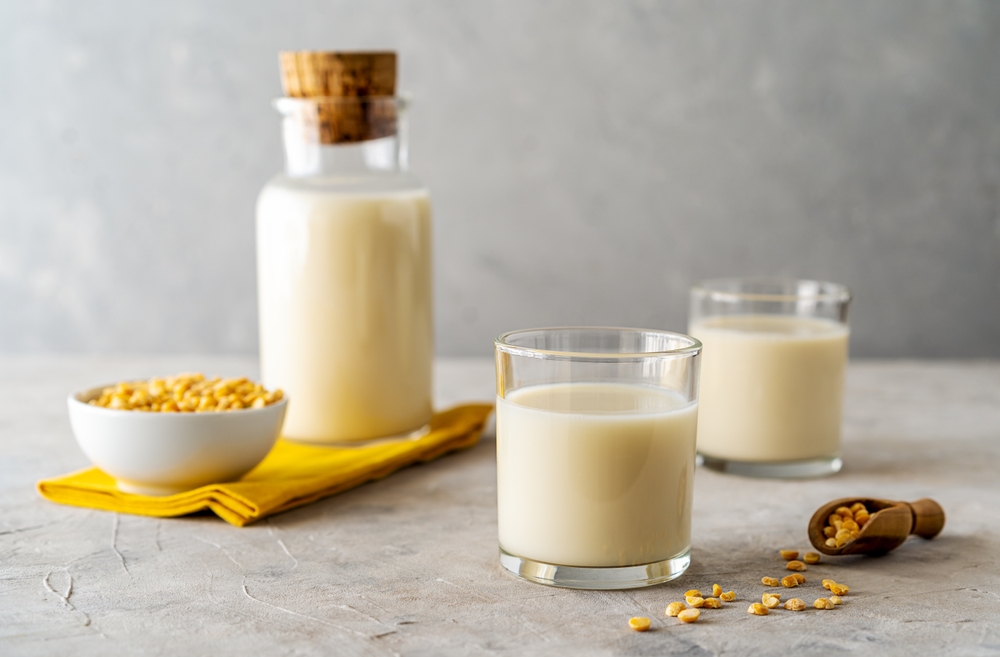
Pea milk, made from yellow peas, contains about 8 grams of protein per cup, comparable to cow’s milk. It has a creamy consistency and a neutral taste, making it suitable for both sweet and savory dishes. Pea milk is also hypoallergenic, catering to those with soy or nut allergies. Brands like Ripple have popularized this milk, emphasizing its high protein content and environmental sustainability. Moreover, pea milk is often fortified with nutrients like calcium and vitamin D.
Hemp Milk
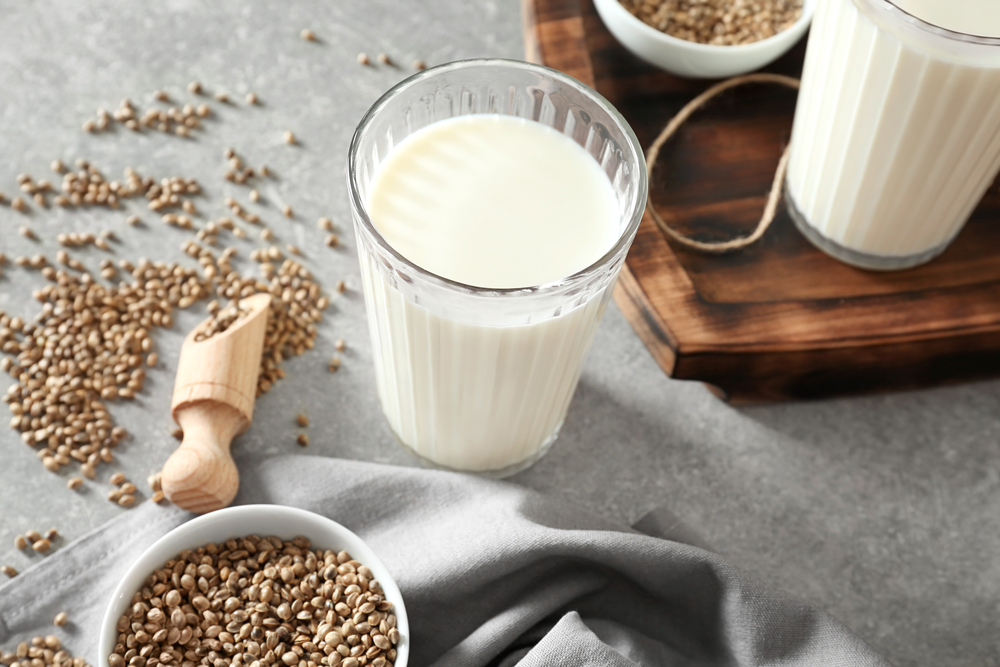
Hemp milk offers approximately 3 grams of protein per cup and is derived from hemp seeds. It has a slightly nutty flavor and a thin consistency. Rich in omega-3 and omega-6 fatty acids, hemp milk supports heart health. It is also a good source of essential amino acids, contributing to muscle repair and growth. Hemp milk is typically fortified with vitamins and minerals, including calcium and vitamin D.
Oat Milk
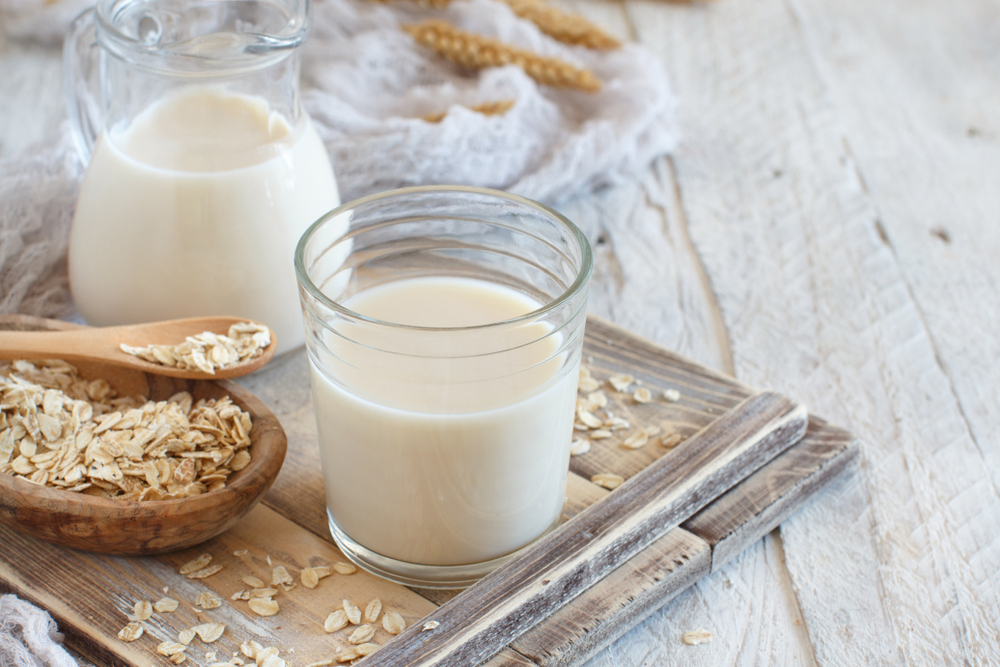
Oat milk provides around 2–3 grams of protein per cup, depending on the brand. Made by blending oats with water and straining the mixture, it has a creamy texture and a naturally sweet taste. Oat milk is often fortified with vitamins and minerals, such as calcium and vitamin D, to enhance its nutritional value. It is also a good source of beta-glucans, which are beneficial for heart health. However, its protein content is lower compared to soy or pea milk.
Almond Milk
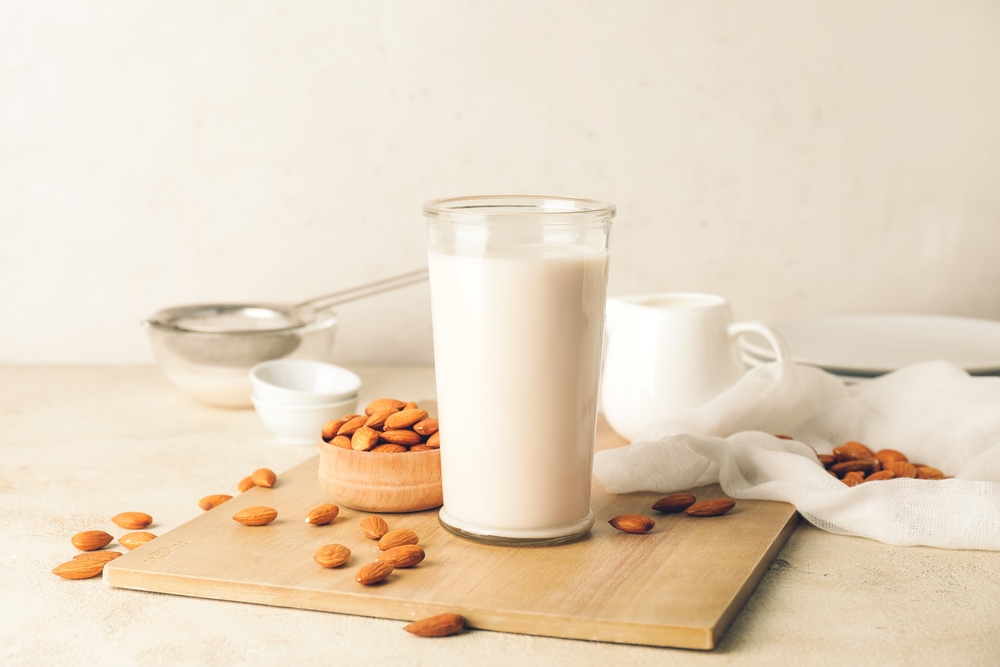
Almond milk contains about 1 gram of protein per cup, making it lower in protein compared to other non-dairy milks. It has a light, nutty flavor, and a thin consistency. Almond milk is often fortified with calcium and vitamin D to improve its nutritional profile. It is low in calories and suitable for those seeking a lighter alternative. However, its low protein content may not be ideal for those focusing on muscle building.
Cashew Milk
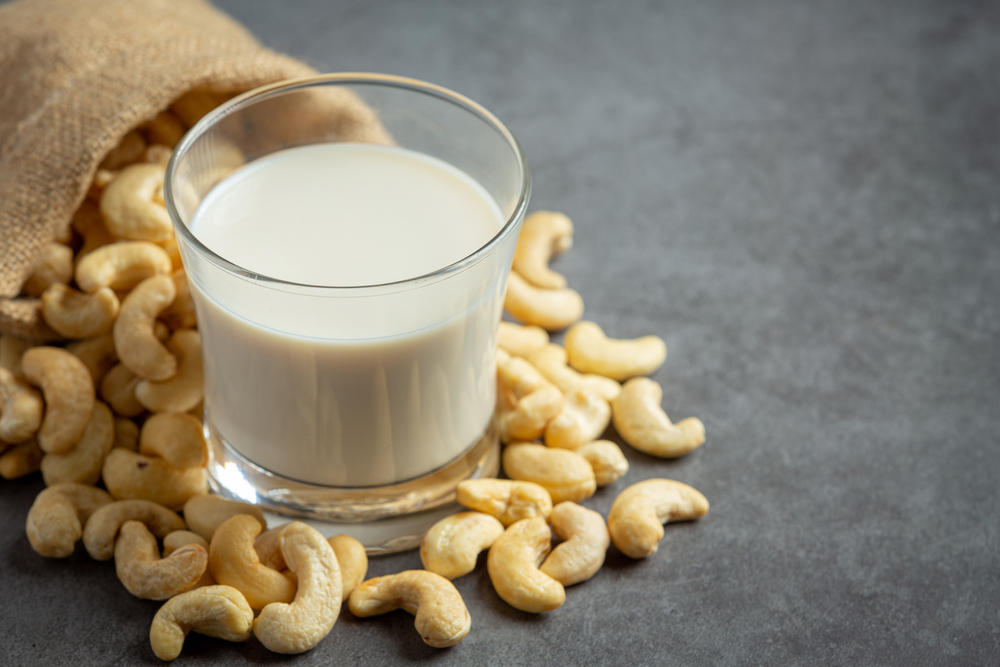
Cashew milk offers approximately 1 gram of protein per cup. It has a creamy texture and a subtle, slightly sweet flavor. Cashew milk is often fortified with vitamins and minerals, including calcium and vitamin D. It is lower in calories and fat compared to some other non-dairy milk. Due to its low protein content, it may not be the best choice for those seeking to increase protein intake.
Flax Milk
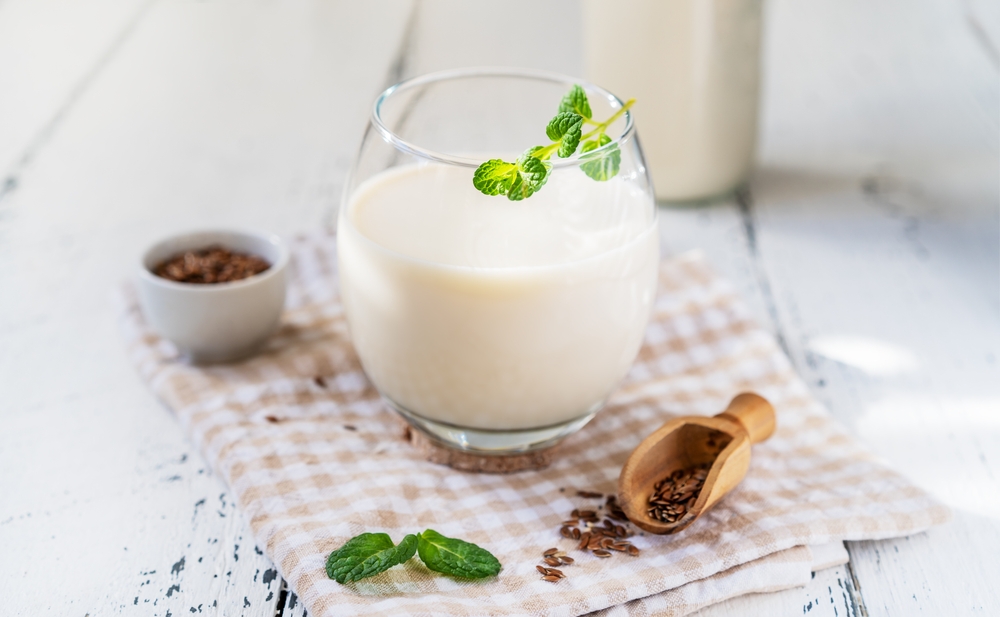
Flax milk contains about 0 grams of protein per cup, as it is primarily made from flax oil rather than the whole seed. It has a light, slightly nutty flavor, and a thin consistency. Flax milk is rich in omega-3 fatty acids, which are beneficial for heart health. It is often fortified with vitamins and minerals, such as calcium and vitamin D. However, its lack of protein makes it less suitable for those looking to increase protein intake.
Rice Milk
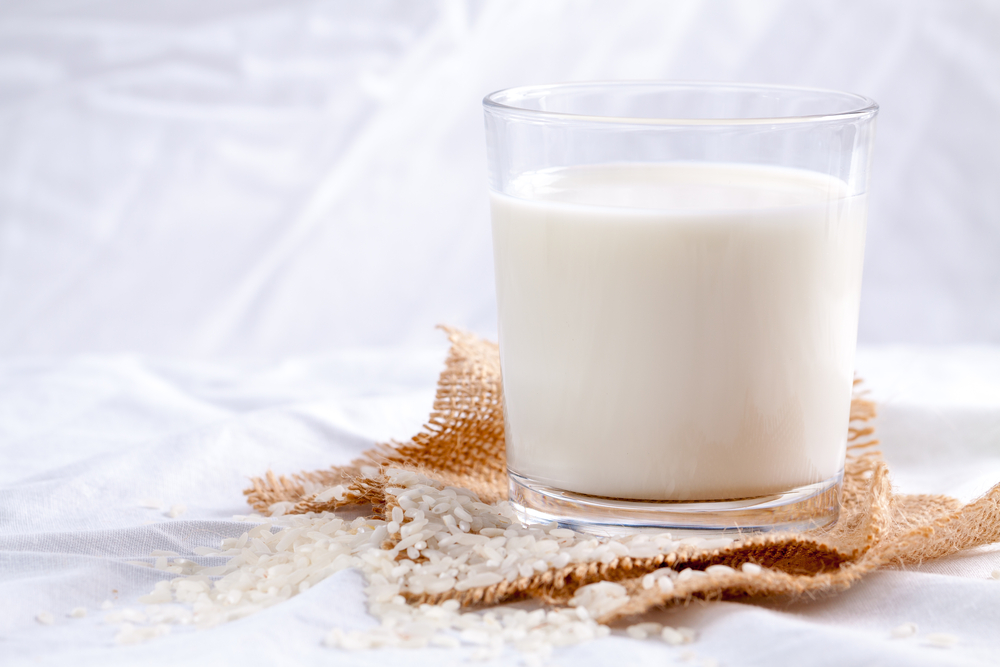
Rice milk provides about 0–1 gram of protein per cup, making it one of the lowest in protein among non-dairy milks. It has a naturally sweet taste and a thin consistency. Rice milk is often fortified with vitamins and minerals, including calcium and vitamin D. It is hypoallergenic, making it suitable for those with multiple food allergies. However, its low protein content and higher carbohydrate content may not be ideal for those focusing on muscle building.
Coconut Milk
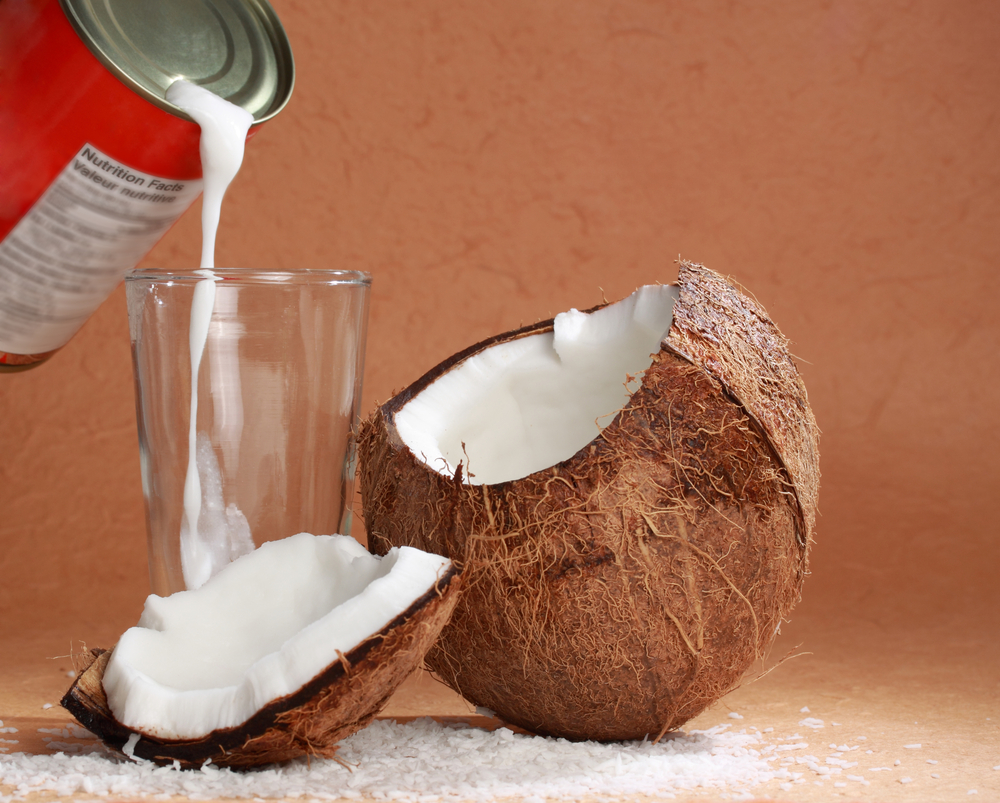
Coconut milk contains about 0–1 gram of protein per cup. It has a rich, creamy texture and a distinct coconut flavor. Coconut milk is higher in saturated fats compared to other non-dairy milks. It is often used in cooking and baking due to its rich flavor. However, its low protein content makes it less suitable for those seeking to increase protein intake.
Macadamia Milk
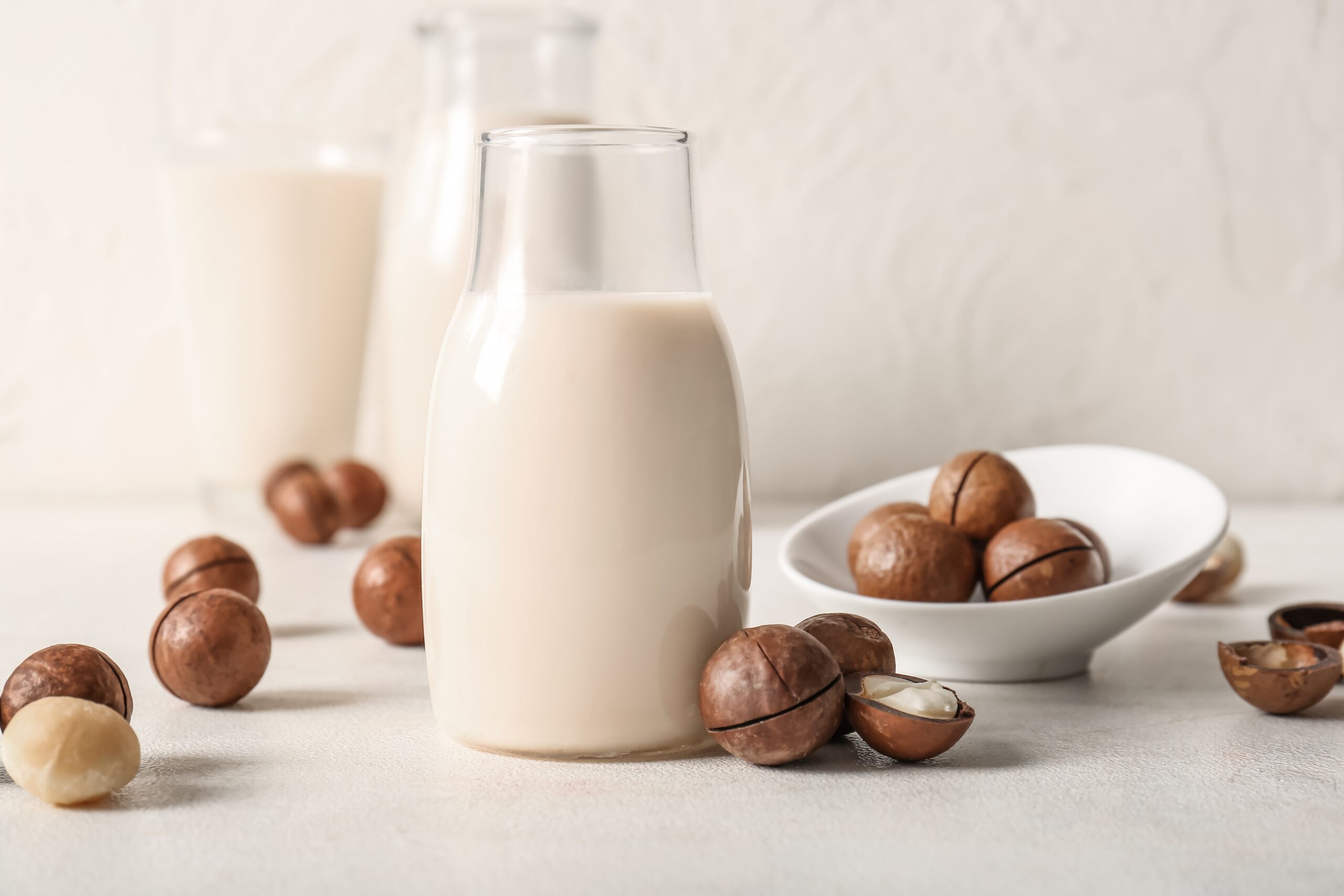
Macadamia milk offers approximately 1 gram of protein per cup. It has a rich, creamy texture and a subtle, slightly sweet flavor. Macadamia milk is often fortified with vitamins and minerals, such as calcium and vitamin D. It is lower in calories and carbohydrates compared to some other non-dairy milks. Due to its low protein content, it may not be the best choice for those focusing on muscle building.
Hazelnut Milk
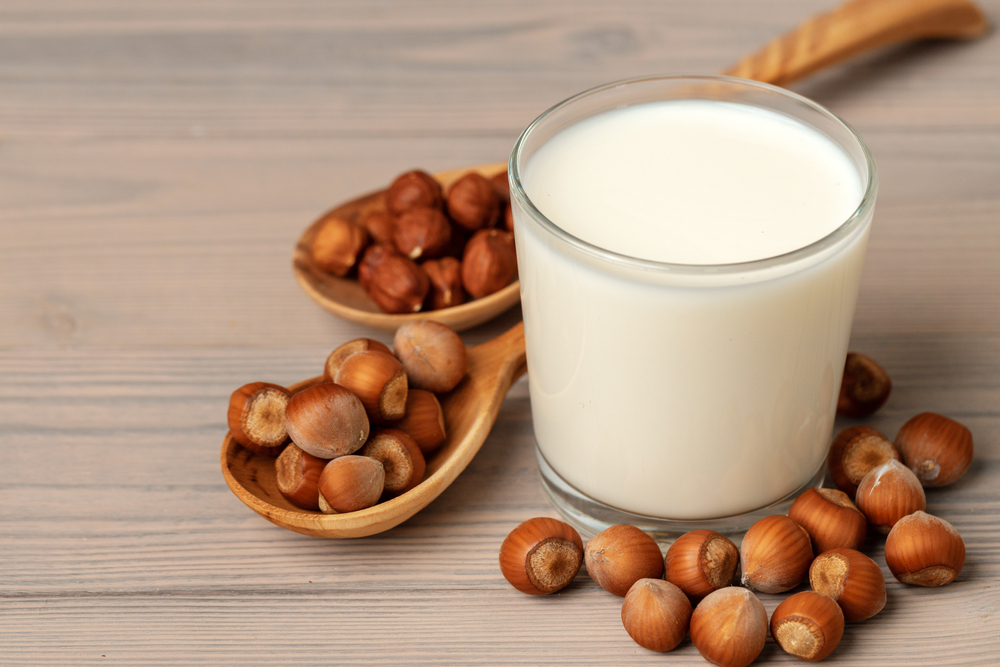
Hazelnut milk offers approximately 1–2 grams of protein per cup, making it a moderate source of plant-based protein. It is known for its rich, nutty flavor and creamy texture, which can enhance the taste of various beverages and recipes. Hazelnut milk is often fortified with essential vitamins and minerals, such as calcium and vitamin D, to boost its nutritional profile. Additionally, it contains healthy fats and antioxidants, contributing to overall health benefits. However, due to its relatively low protein content, it may be less suitable as a primary protein source for those engaged in strength training.
Pistachio Milk
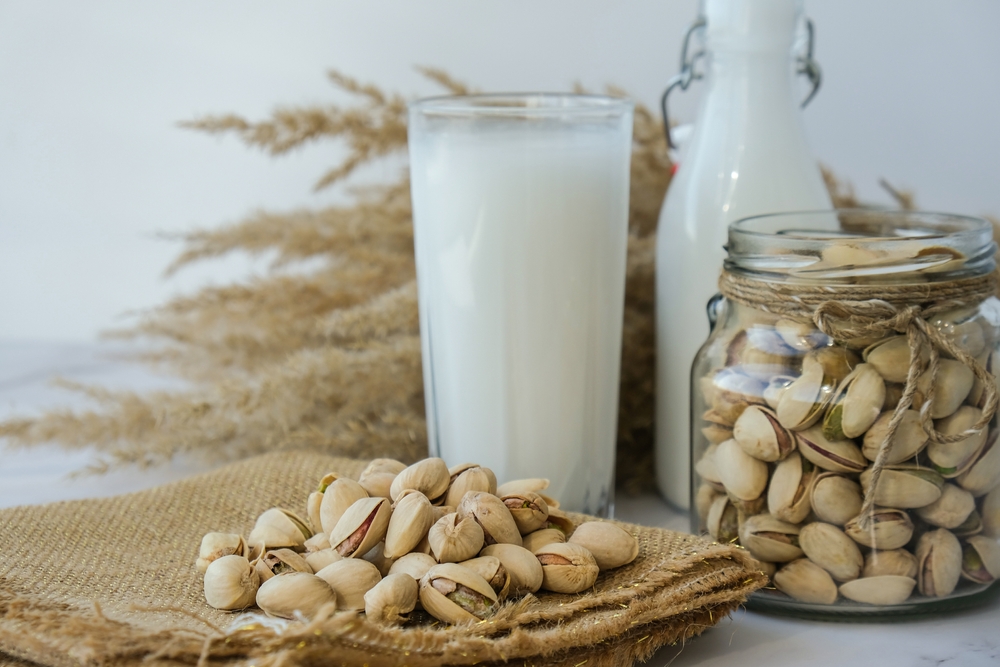
Pistachio milk provides about 4 grams of protein per cup, offering a higher protein content compared to many other nut-based milks. It has a distinctive, slightly sweet, and nutty flavor, along with a creamy consistency. Pistachio milk is also rich in antioxidants, healthy fats, and essential nutrients like vitamin B6 and potassium. Some brands fortify pistachio milk with additional vitamins and minerals to enhance its nutritional value. Its unique taste and nutritional benefits make it a versatile option for various culinary applications.
Peanut Milk

Peanut milk contains approximately 6 grams of protein per cup, making it a substantial plant-based protein source. It has a rich, nutty flavor and a creamy texture, suitable for smoothies, cereals, and baking. Peanut milk is also high in healthy fats, magnesium, vitamin E, and vitamin B6, contributing to its nutritional benefits. It is a viable option for those with lactose intolerance or dairy allergies, providing a nutritious alternative to cow’s milk. However, individuals with peanut allergies should avoid this milk.
Sunflower Seed Milk
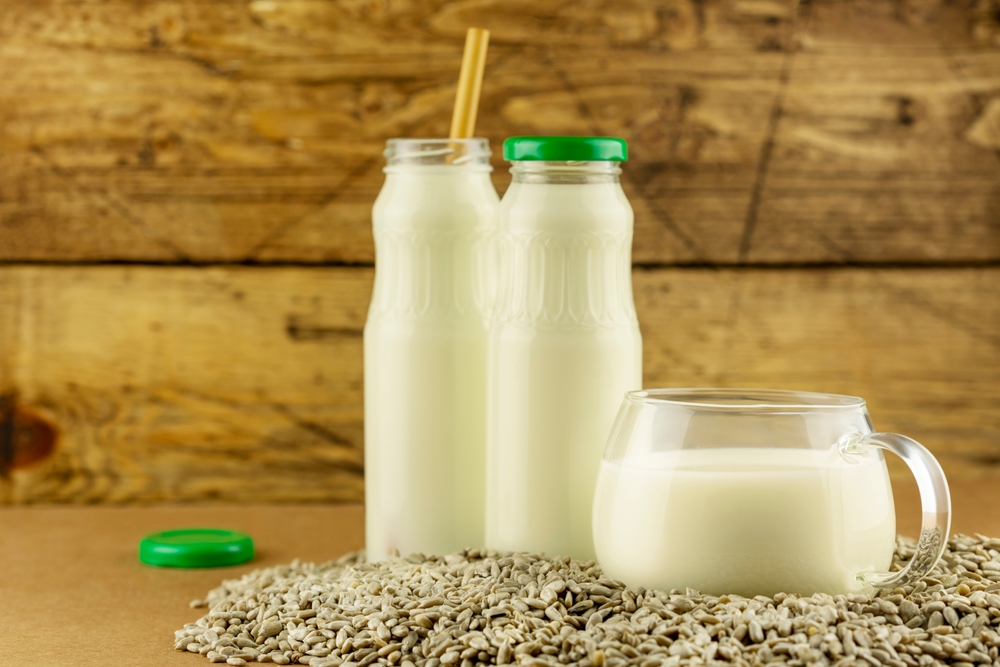
Sunflower seed milk offers about 2–3 grams of protein per cup, depending on the preparation method. It has a mild, slightly nutty flavor and a creamy consistency. Sunflower seed milk is rich in vitamin E, magnesium, and healthy fats, supporting overall health. It is also a suitable option for those with nut allergies, as sunflower seeds are not classified as tree nuts. While its protein content is moderate, it can be a valuable addition to a balanced diet.
Quinoa Milk
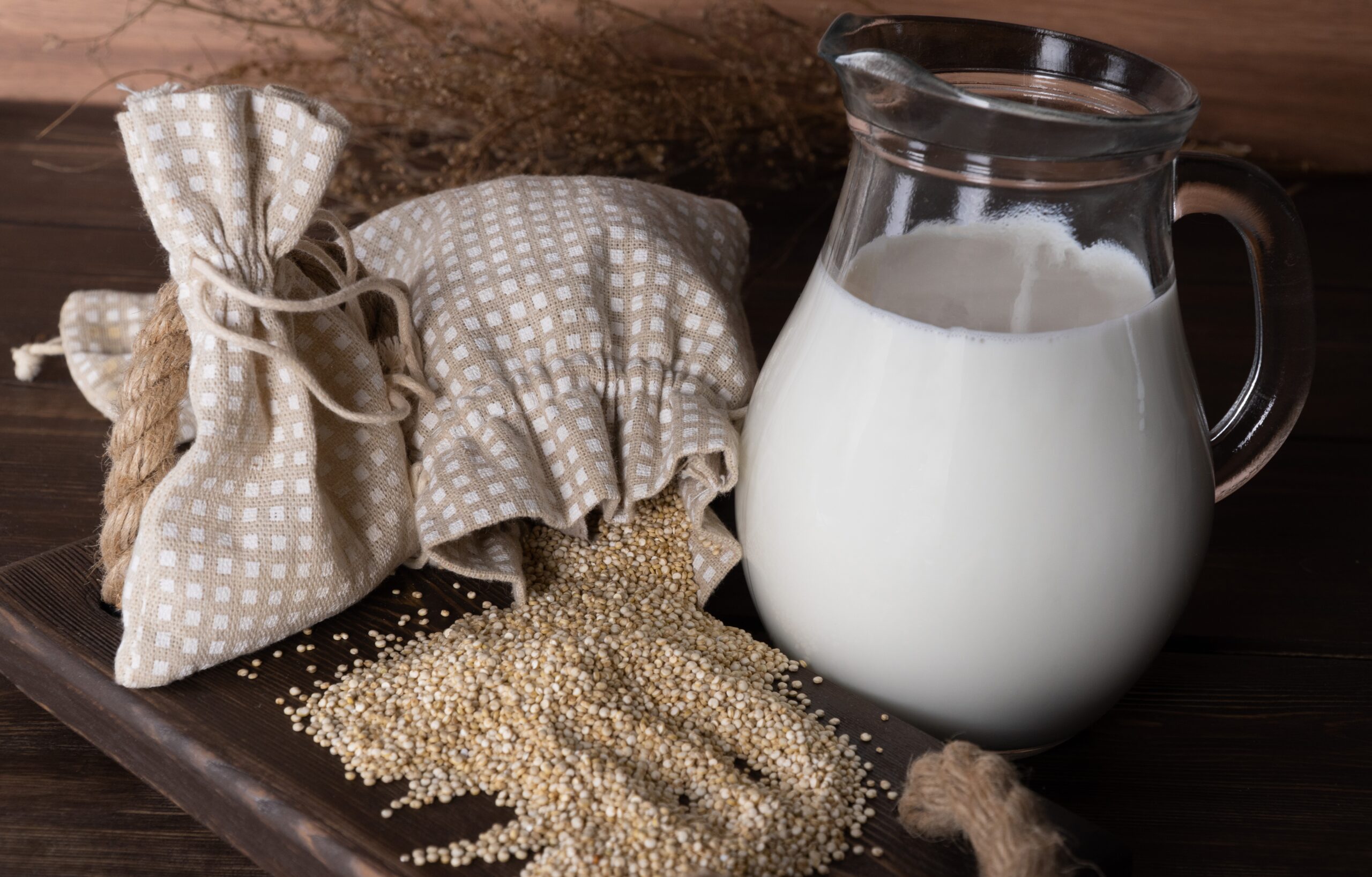
Quinoa milk contains approximately 2 grams of protein per cup. It has a slightly nutty and earthy flavor, with a thinner consistency compared to other plant-based milks. Quinoa is a complete protein, providing all nine essential amino acids, which are beneficial for muscle repair and growth. Quinoa milk is also a good source of fiber, iron, and magnesium, contributing to its nutritional profile. However, due to its lower protein content, it may be best used in combination with other protein sources to meet dietary needs.
This article originally appeared on RetailShout.
More From RetailShout
15 Timeless Picnic Recipes from the Past
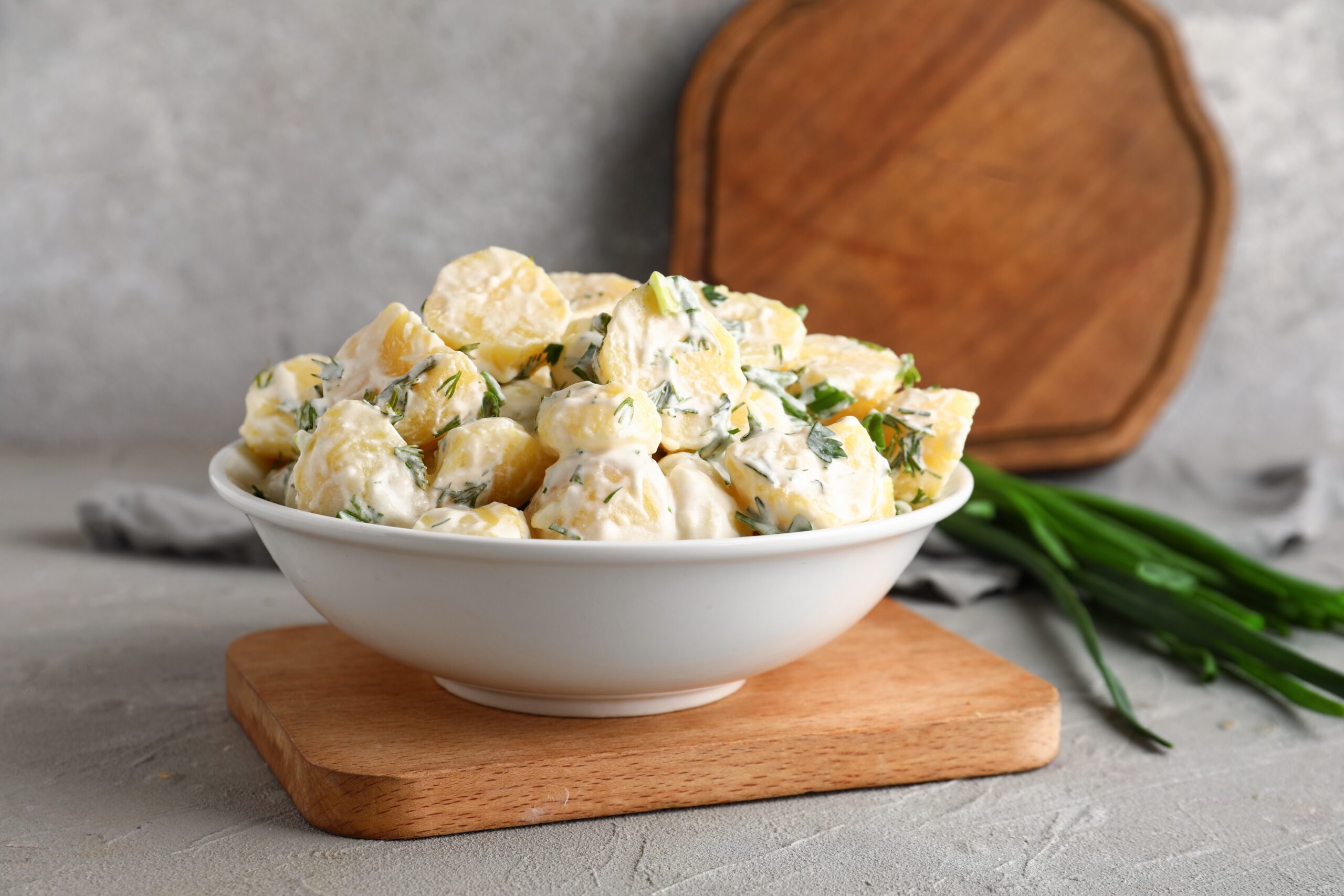
Nothing brings people together quite like a good picnic, and some of the best picnic recipes have stood the test of time. These classic dishes are more than just nostalgic—they’re tried-and-true favorites that never go out of style. Read More.
10 New Aldi Finds to Add to Your Cart This November
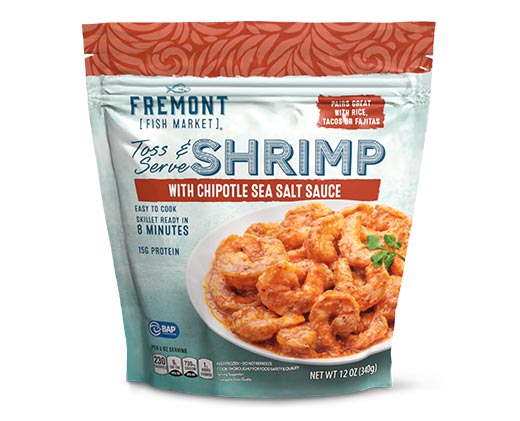
November’s here, and Aldi is rolling out some fantastic seasonal finds that are just too good to miss. From crowd-pleasing appetizers to indulgent sweets, there’s something new and exciting to try in every aisle. Read More.
18 Chic Target Kitchen Finds That You’ll Absolutely Adore
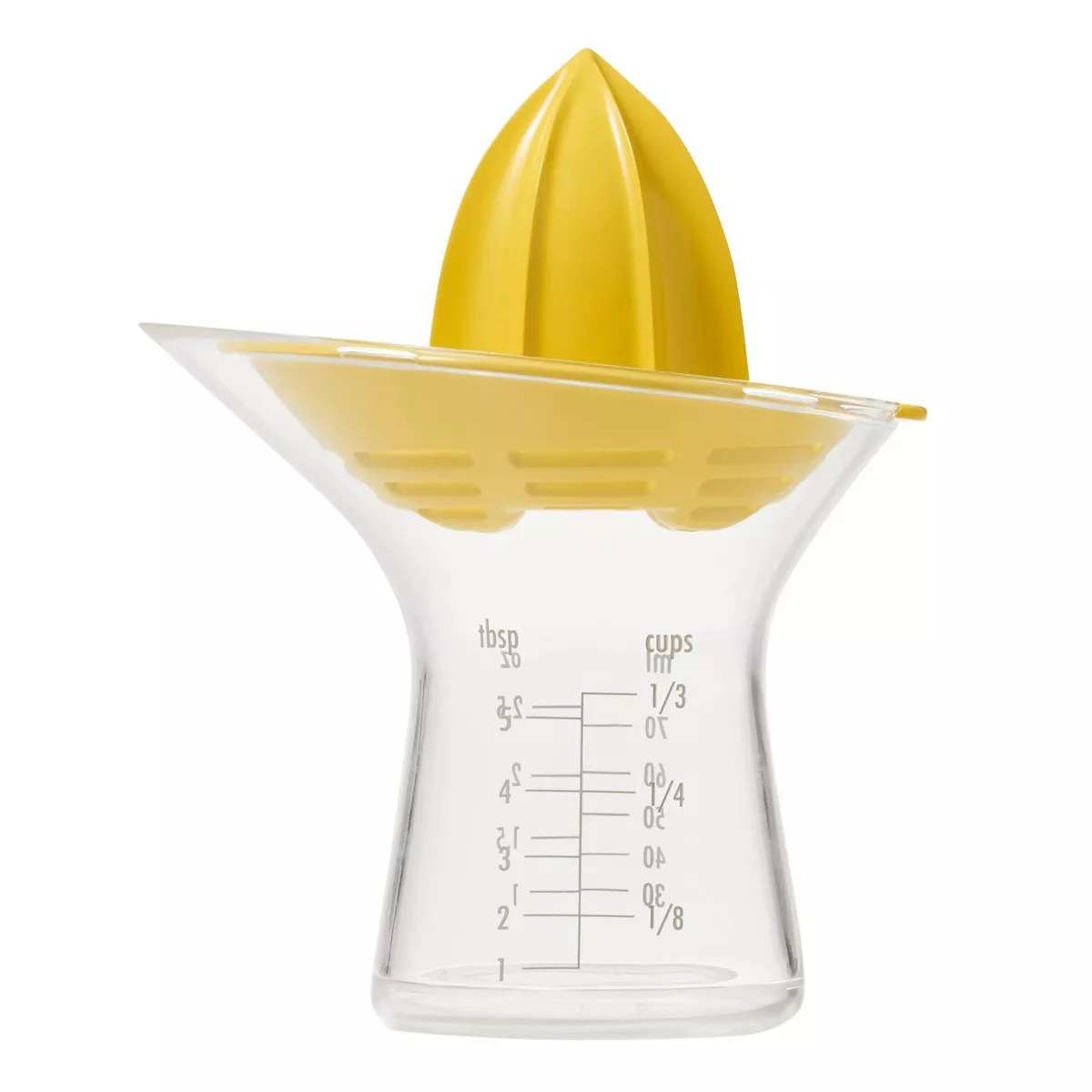
Target has become a go-to spot for finding chic and affordable kitchen essentials that bring both style and function into your home. Whether you’re looking for unique décor, functional cookware, or trendy accessories, Target offers a wide range of options that blend seamlessly with any kitchen aesthetic. Read More.

